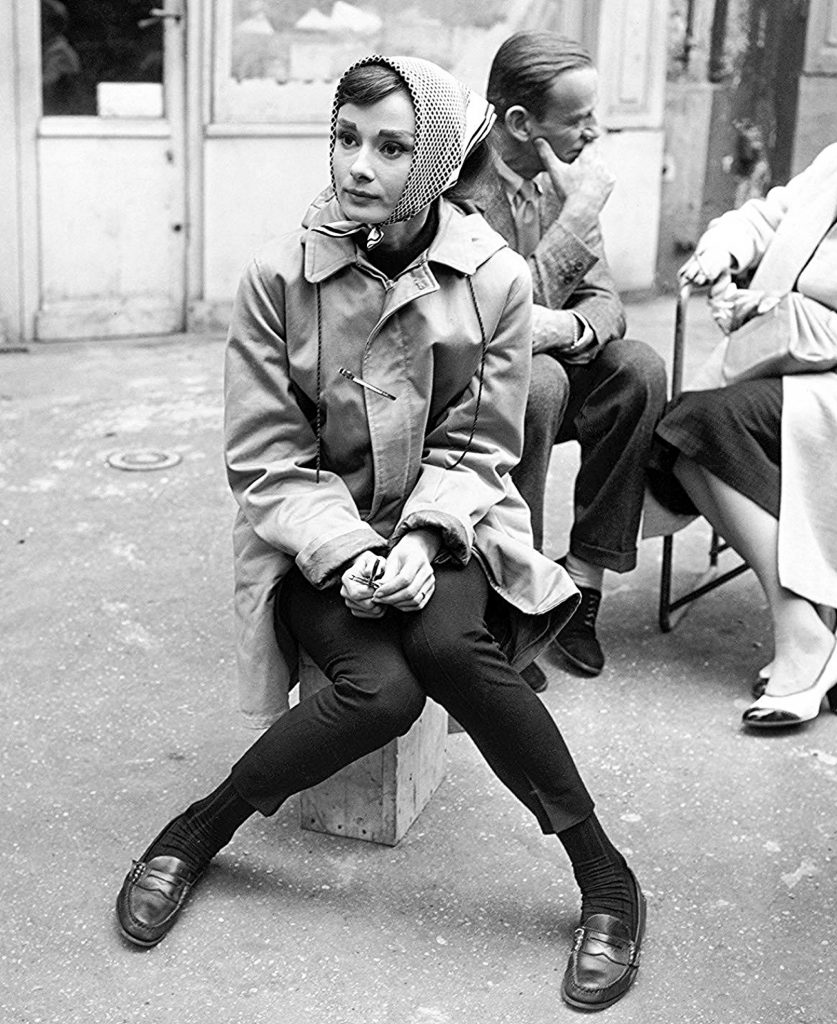
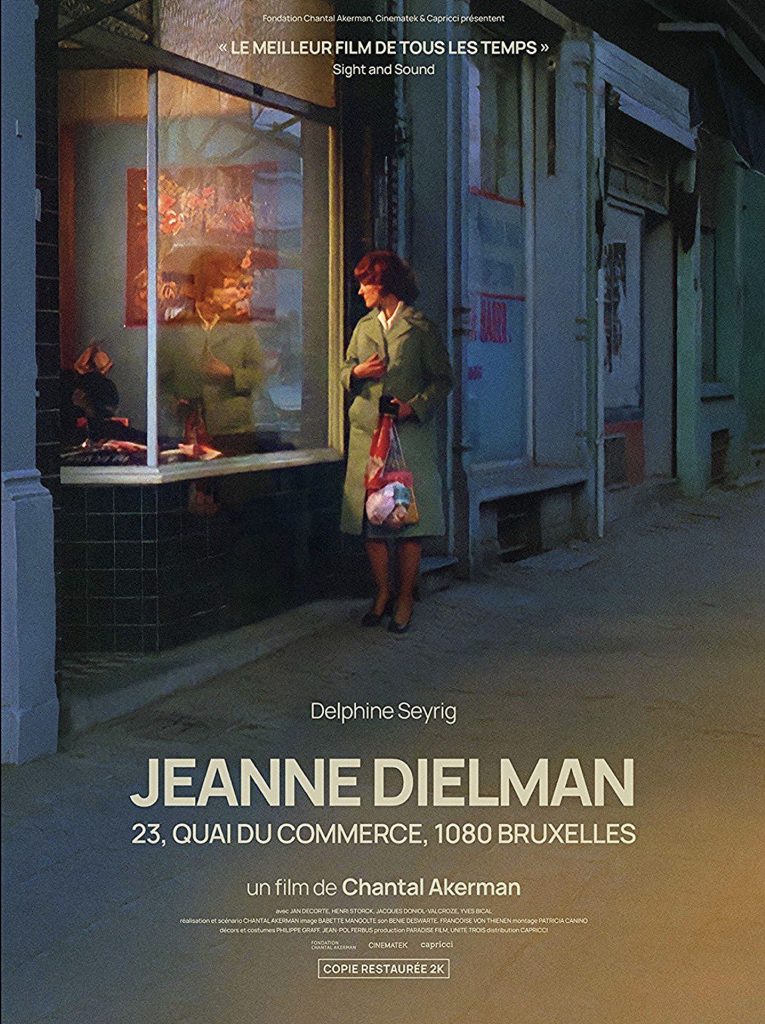


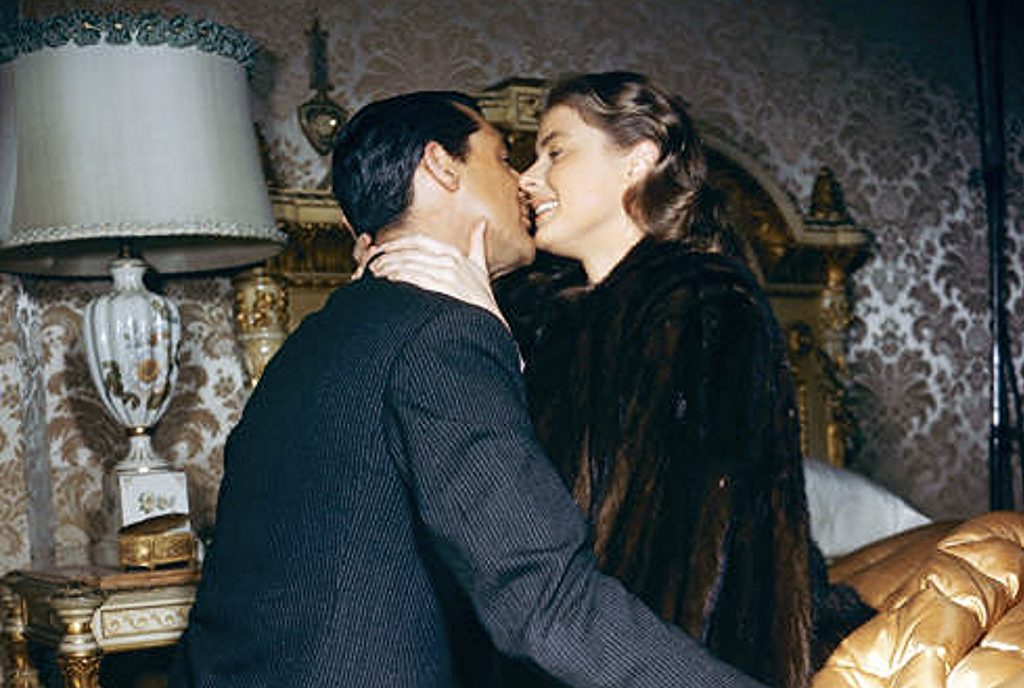
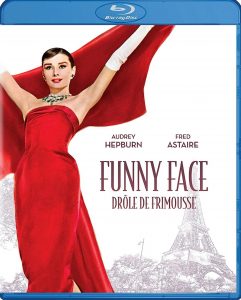






A.O. Scott, the long-serving N.Y. Times critic (1999-2023) who’s shifting into book-reviewing, has tapped out a kind of farewell essay. Here are my reactions, including one unanswered question.
1. Why doesn’t Scott explain why he’s bailing? Does he feel like a burnt-out case? Okay, then say that and relate how he got to this point. What led to this presumed lethargy? What turned him off? Scott isn’t that old (56) but has reviewed films for the Times for roughly the same number of years that Vincent Canby did (23 or 24, give or take). So what’s the lowdown?
2. An unfortunate fact (and I take no pleasure in bringing it up) is that Scott, an excellent, highly perceptive critic for the better part of two decades, began to drink wokester Kool-Aid about three or four years ago, and in my humble view dented his rep to a proportionate degree. (Ditto Manohla Dargis.) On 1.17.22, I wrote about “a category of film lovers who have lifted off the planet so often and gone so far around the bend and outside of our solar system, caused for the most part by extra-passionate wokeness (which includes a rapt belief in the wondrous and transcendent benefit of abosrbing any and all films about POC characters, POC history and starring POCs), and who seem oddly committed to contrarianism for contrarianism’s sake (i.e., the Armond White syndrome). Due respect but after pondering A.O. Scott‘s recently posted list of the most award-deserving films of 2021, I have to acknowledge the possibility that even within his bizarre arena of N.Y. Times woke-itude, Scott may be even more of an eccentric than White, and that’s saying something.”
3. “Let’s not even mention Woody Allen,” Scott writes. No, let’s mention Allen and particularly Scott’s decision to wash his hands of this great Brooklyn-born artist, which for me was entirely foul and cruel and horrid. Allen is incontestably a great filmmaker — a man of considerable genius and relentless innovative creativity, a guy whose output has enhanced the quality and worldliness of American cinema over the last 55 years, and whose sterling reputation as a filmmaker will be remembered and cherished long after Scott and the other Allen denigrators have died and been forgotten.
4. Scott on Allen’s Match Point (’05): “It is the film’s brisk, chilly precision that makes it so bracingly pleasurable. The gloom of random, meaningless existence has rarely been so much fun, and Mr. Allen’s bite has never been so sharp, or so deep. A movie this good is no laughing matter.”
5. One of the finest opening paragraphs in the history of movie reviewing was contained in Scott’s 5.25.01 review of Michael Bay‘s Pearl Harbor: “The Japanese sneak attack on Pearl Harbor that brought the United States into World War II has inspired a splendid movie, full of vivid performances and unforgettable scenes, a movie that uses the coming of war as a backdrop for individual stories of love, ambition, heroism and betrayal. The name of that movie is From Here to Eternity.”
6. From Scott’s farewell essay: “I’m not a fan of modern fandom. This isn’t only because I’ve been swarmed on Twitter by angry devotees of Marvel and DC and (more recently) Top Gun: Maverick and Everything Everywhere All at Once. It’s more that the behavior of these social media hordes represents an anti-democratic, anti-intellectual mind-set that is harmful to the cause of art and antithetical to the spirit of movies. Fan culture is rooted in conformity, obedience, group identity and mob behavior, and its rise mirrors and models the spread of intolerant, authoritarian, aggressive tendencies in our politics and our communal life.”
A quote attributed to Ben Affleck in Rebecca Keegan’s 3.16 THR interview mentions his 17 year-old daughter, Violet: “I like the fact that she has this silver rapier tongue. [Then again] she lives her life largely in opposition to the work her parents have spent their lives dedicated to, where she’ll say things like, ‘I’m not sure film is really…do you think it’s a genuine art form?”
HE to Violet: “Movies have been, at best, a haphazard art form, which is to say one that occasionally detours into art or at least an attempt at same. A half-assed, now-and-then art form. Or at least during awards season until Everything Everywhere All At Once, the equivalent of a cinematic hydrogen bomb or mass cyanide capsule, came along.
“But on the audience side of the equation, the occasional communal appreciation of movies and least a semblance of a belief that movies can at least potentially deliver some kind of artful reflection of what it’s like to live and struggle on this planet…that communal tradition is pretty much over, and it’s been killed by your generation (GenZ) along with the Millennials.
“People have been communally watching proscenium-arch plays since the Greek and Roman eras, and feature films since 1915 or thereabouts — call it a century and change. And then you guys arrived and settled in and pretty much killed the whole togetherness aspect. Not altogether but, you know, mostly.
“Now it’s mainly about streaming content in your living rooms or on your Macbooks and iPads, but not really ‘watching’ because you’re constantly texting and multi-tasking and checking out TikTok videos whenever your attention wanders.
“So to answer your question, film used to satisfy the measurement of being an occasional art form until you guys dropped in. Commercial movie theatres used to be regarded in some quarters as churches…no longer! Now they’ve pretty much become gladiator arenas. People used to sit there for 115 minutes or longer and actually pay attention for the most part…no longer for the most part!
“Nowadays the only way to savor really good films in a theatrical environment with people who ‘get’ it and love the worshipful aspect is to attend an upscale film festival (Cannes, Telluride, Toronto, Berlin, Sundance). Have you ever attended one of these? Maybe you should think about doing this. Can’t hurt.”
(Obviously the same laments, scoldings and heartbreaks apply also to Gen Alpha, born between 2010 and 2025.)
The first person to say these four words to me (in person, I mean) was Paul Schrader. It was during an American Gigolo interview held in the vicinity of the old Paramount building. (Now the Int’l Trump hotel & tower.) I forget the context but they’ve never left me, most likely because I’ve come to understand over the years that this is how creation often happens, or most often happens.
Yes, I’m aware that Paul McCartney has passed this anecdote along for many years. I’m also aware that Jethro Tull‘s “Bouree” was also influenced by (i.e., ripped off from) Johann Sebastian Bach)
Originally posted on 1.27.20: On 1.14.20 author Stephen King stood up like a man and told the truth about the proper evaluation of excellence and award-worthiness in the realm of motion pictures. What was this brave and fearless statement? Simply that he “would never consider diversity in matters of art. Only quality. It seems to me that to do otherwise would be wrong.”
Well, the wokester Khmer Rouge sure disabused King of that idiotic opinion, you bet!
They jumped all over his ass on Twitter, and before you could say “oh, no, wait…holy shit!” King was on his knees, grovelling and mewing like a kitten and saying he was so sorry sorry sorry sorry sorry sorry sorry sorry. “Please, wokesters…don’t cancel me for being an older white guy…pleeeease!”
Have white Academy members voted according to certain biases and blind spots over the years? No shit, Sherlock. I will never forgive those who voted to give the Best Picture Oscar to The Artist, The King’s Speech and Chicago, and that’s regardless of their ancestry, pigmentation or income levels.
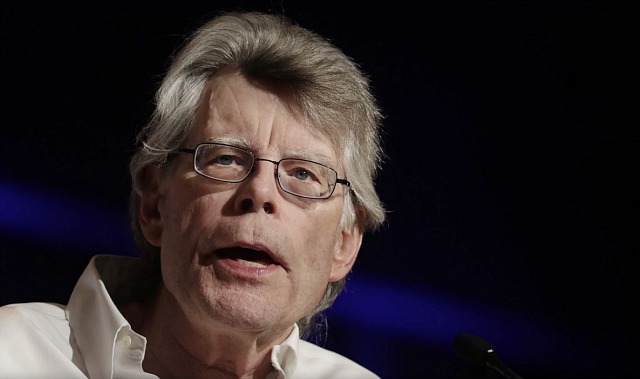
Then again should every older-white-guy Academy member who voted to give the Best Picture Oscar to Moonlight be congratulated for showing an absence of these biases and blind spots? Well, not necessarily because in that case a lot of whiteys wanted to counter-balance the #OscarsSoWhite thing, and figured a Moonlight win would partially get them off the hook.
But in a neutrally just and fair world nobody should vote for anything because of guilt or out of some kind of subconscious need to make political amends. They should vote for a Best Picture contender or nominee because it happens to be, by the yardstick of the Movie Godz, an excellent film. Period.
As in the case of Steve McQueen‘s 12 Years A Slave, which I instantly recognized as a world-class effort when I saw it in Telluride on 8.30.13. Or in the case of those who lazily or carelessly voted for Argo or the History Channel-ish Lincoln instead of the far more vital and envelope-pushing Zero Dark Thirty or Silver Linings Playbook.
King spoke truth to Twitter power when he said that “only quality” should matter — a statement King now says he “mistakenly thought was noncontroversial.” For his sins he was taken out to the Twitter woodshed and lashed with a strap of leather. He’s still carrying a few crimson welts, still bent over a bit.
With the memory of that punishment in his mind, King doubled-down today with another mea culpa — a Washington Post opinion piece titled “The Oscars Are Still Rigged In Favor of White People.”
Which they are. Changes have obviously been instituted (i.e., “the New Academy Kidz”) but the proportion of white vs. POC Academy members remains unfair and disproportionate, especially if you compare actual numbers and percentage charts in the matter of the Hollywood workforce. Or so I gather.
But as unfair and lopsided as things still are (no one’s disputing the statistics or denying that the playing field has to be further levelled), this shouldn’t enable or give license to Academy members to vote for a slightly-less-good film because it was made by the right people and/or the right reasons, or vote for a slightly-less-riveting performance because the right actor performed it. When the choices are put before you, you’re obliged to vote for the best.
I know it’s a terrible thing to say in the present context, but King was more accurate than not the first time.
Exactly as posted on 11.25.21 under the title “Moonlight Clarity“:
Sometimes in the science of Oscarology it takes a few years to understand the political reasons (for all Oscar triumphs are political) behind this or that winner snagging a trophy.
Take the Moonlight win, for example. Thanks to Spike Lee’s refreshing frankness, we can now safely assume that the deciding factor behind Barry Jenkins’ film beating La La Land was about Academy members being able to tell themselves that #OscarsSoWhite had been squarely faced and responsibly negated.
But in the days following the 2.26.17 Oscar telecast, many were saying “of course!…of course Moonlight was obviously better than La La Land!…on top of which it was wrong for a white guy to love jazz.”

I didn’t feel that way, but the mob was on a roll.
“Putting Moonlight To Bed,” posted on 3.4.17: “This is several days old and yesterday’s news, but a 2.28 Hollywood Reporter piece by Stephen Galloway that derided the echo chamber of Oscar punditry and the failure of the know-it-alls to foresee Moonlight‘s Best Picture win (“Why the Pundits Were Wrong With the La La Land Prediction“) was wrong in two respects.
“One, whoda thunk it? Even now I find it perplexing that Moonlight won. A finely rendered, movingly captured story of small-scale hurt and healing, it’s just not drillbitty or spellbinding enough. I wasn’t the least bit jarred, much less lifted out of my seat, when I first saw it at Telluride. Moonlight is simply a tale of emotional isolation, bruising and outreach and a world-shattering handjob on the beach…Jesus, calm down.
“As I was shuffling out of the Chuck Jones I kept saying to myself “That‘s a masterpiece?” (Peter Sellars, sitting in front of me, had insisted it was before the screening started.) If there was ever a Best Picture contender that screamed ‘affection and accolades but no Oscar cigar,’ it was Moonlight. And the Oscar pundits knew that. Everyone did.
“So I don’t know what happened — I really don’t get it.**
“I’ve already made my point about Moonlight in the Ozarks. It’s just a head-scratcher. And two, Galloway’s contention that only pipsqueaks with zero followings were predicting or calling for a Moonlight win is wrong.
“As I noted just after the Oscars, esteemed Toronto Star critic Pete Howell and Rotten Tomatoes‘ Matt Atchity were predicting a Moonlight win on the Gurus of Gold and Gold Derby charts. As I also noted, Awards Daily‘s Sasha Stone hopped aboard the Moonlight train at the very last millisecond, although she stuck to La La Land for her Gurus of Gold ballot. These are facts, and Galloway’s dismissing Howell and Atchity was an unfair oversight.”
** It wasn’t safe to say that Moonlight ‘s win was about Academy members covering their ass until Lee said this on 6.21.17. After that it was olly-olly-in-come-free.